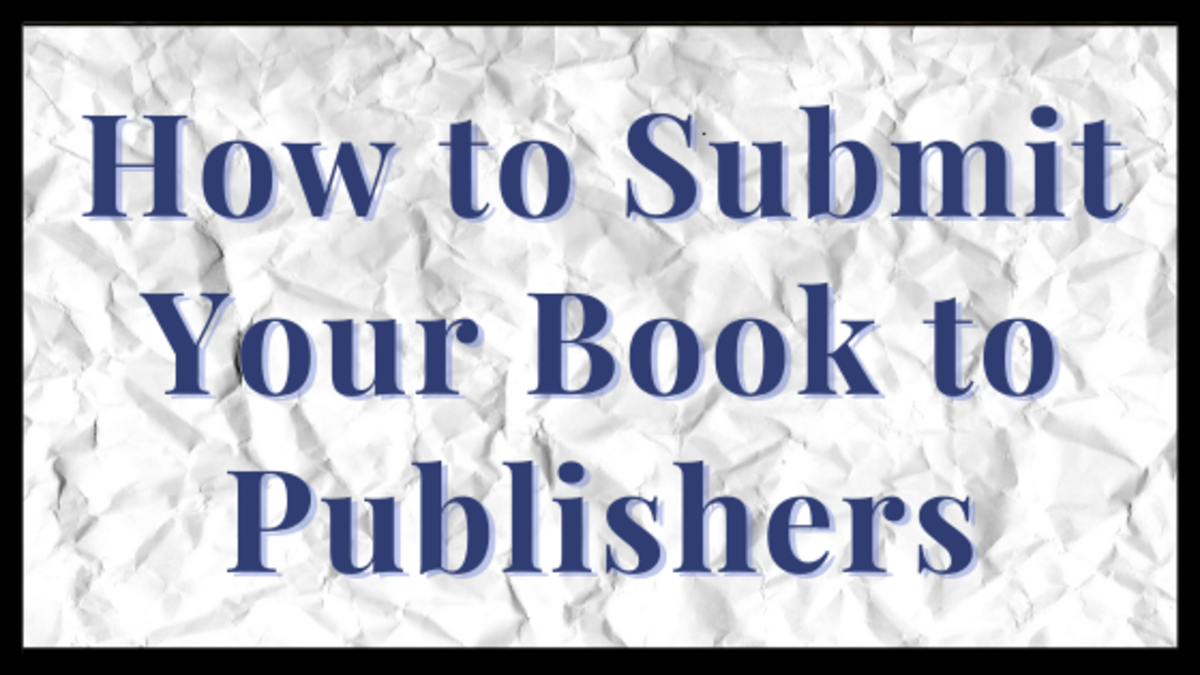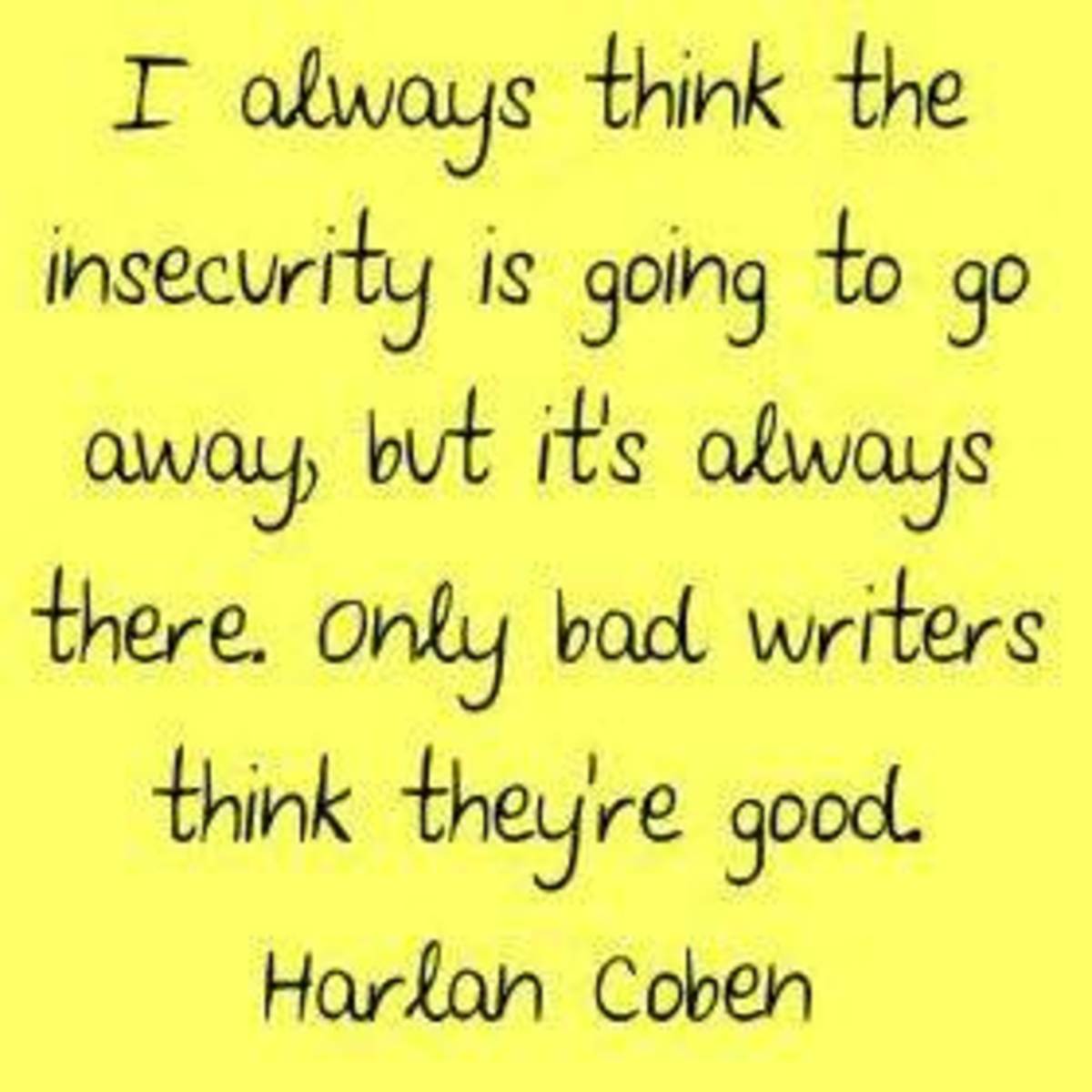- HubPages»
- Books, Literature, and Writing»
- How to Write»
- How to Get Published
Tips on Submitting Your Book to a Publisher

The Path to Publication
You've finished your novel, finally setting down your pen. You're ready to move on to the next step: publication. Finding a publisher is often much more arduous and stressful than actually writing your book. While sitting down to write can be a joy and a passion, writing query letters and researching publishing houses can be straight drudgery.
Some writers get so overwhelmed that they rush through the process and end up with a pile of rejection letters. However, if you take the time to research publishers, craft a compelling and engaging query letter and synopsis, and perhaps even find a dedicated agent, you may soon see your novel on a shelf at the local library or bookstore!
Read on for tips on submitting your non-fiction book or novel to a publisher.
Research the Publisher Before Submitting Your Book
Before submitting your book anywhere, be sure to research each and every publishing house you plan to send your novel to. Each house has different requirements--some will want the entire novel, some will just want a query letter and a synopsis, and some may want sample chapters. More importantly, some will not look at your book at all if you don't have an agent--so don't waste your time with any house that accepts only "agented submissions."
If the house wants you to format your query letter a certain way, or in a certain font, do it--don't think they'll overlook the fact that you didn't follow directions. They get too many submissions to be lenient.
Finally, sit down and think of a few publishers--I'm sure your shortlist may include Random House, Penguin, and Simon & Schuster. But did you know there are literally hundreds of smaller presses, as well? Many of them specialize in certain types of novels, and they have marketing divisions to help promote your book. Consider the genre of your book and then research houses that regularly publish within that genre--you'll have a much better shot of catching an editor's eye in a house that is a good fit for your book. Sending a space odyssey to a house that publishes primarily cookbooks and health books will just result in another rejection letter.

Write a Great Query Letter and Synopsis
For those unfamiliar with the acquisition process, it may seem easy--just send your novel to a publishing house with a little note asking them to consider it for publication, right? Wrong! Publishing is a competitive place, and as I mentioned above, each house has different requirements for submission.
However, most of them WILL require a query letter and a synopsis at a minimum. Your query letter is an introduction of yourself and your qualifications (other publications, life experience, etc.), as well as a very short summary of your book (a paragraph, tops). The query letter is asking the house to publish your book, and telling them why they should.
The synopsis of your novel is a longer summary of your book--three to five pages--and should hit all the major plot points and cover the characters and their personalities. DON'T make it a cliffhanger because you want the editor to contact you to find out the ending--tell them the ending, so they can tell if they're really interested in the book.
Think of your synopsis as your novel boiled down into a short story--it should be interesting and drive the reader through the material, but you'll have to keep it pared down and tight. Sometimes this is just as challenging as writing the novel!
Finally, proofread your query letter and synopsis. Have a friend or family member proofread it as well. You don't want any mistakes in it!
How to Write a Query Letter for Agents
Finding a Book Agent
Publishing houses get large numbers of submissions every day--so many that sometimes it's impossible for the editors to keep up. For this reason, many houses accept only "agented submissions" as a way to keep the submissions numbers manageable. Their reasoning is that if an agent has agreed to represent an author, the author likely has talent and a strong manuscript. Many houses also have on-going relationships with particular agents, and so they trust those agents' recommendations.
Getting an agent is not always easy, because agents are flooded with submissions as well. You can tweak your query letter and synopsis to send to an agent, saving you a little time.
Research agents just as you would publishing houses--agents may specialize in certain genres as well.
Ready to Promote Your Novel?
If you've decided to self-publish instead of going the traditional publishing house route, you'll need quality book reviews to get your novel noticed--check out my book review gig on Fiverr!
Seeing Your Novel in Print
Submitting your book to agents and publishers will be hard work, and it may get discouraging. Just remember, the end result of your labor will be seeing your book in print! It's worth it.








